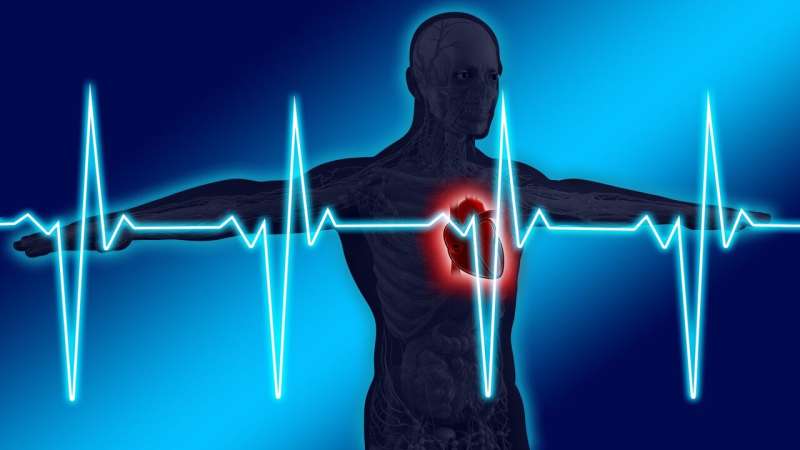This article has been reviewed according to Science X's editorial process and policies. Editors have highlighted the following attributes while ensuring the content's credibility:
fact-checked
trusted source
proofread
Statins may reduce heart disease in people with sleep apnea

A new study by Columbia University researchers suggests that cholesterol-lowering drugs called statins have the potential to reduce heart disease in people with obstructive sleep apnea, regardless of the use of CPAP machines during the night. The study is published in the journal Annals of the American Thoracic Society.
CPAP (continuous positive airway pressure) therapy improves sleep quality and reduces daytime fatigue in people with obstructive sleep apnea. But based on findings from several recent clinical trials, CPAP does not improve heart health as physicians originally hoped.
Alternative methods to reduce heart disease in sleep apnea patients are urgently needed, because the condition is known to triple the risk of having a heart attack, stroke, or another serious cardiovascular event.
Statins (a class of cholesterol-lowering drugs) may be one such method, according to the new study, led by Sanja Jelic, MD, associate professor of medicine at Columbia University Vagelos College of Physicians and Surgeons.
The study included 87 people with recently diagnosed obstructive sleep apnea who were being treated with CPAP. The patients were randomized to receive treatment with either statins or a placebo.
The researchers found that statins, but not CPAP, protected blood vessels against dangerous inflammatory changes that occur in people with the condition.
The researchers looked specifically at the CD59 protein, which keeps inflammation in check when stabilized in the blood vessels. A previous study by Jelic's team showed that CD59, which protects cells against complement (a group of proteins that promote inflammation) activity, is more stable when cholesterol is low. Among study participants, CD59 was stabilized after four weeks of cholesterol-lowering statin therapy, but not with CPAP alone.
"The effect we found with statins is important," says Jelic. "Inflammation in the blood vessels is a key step in progression of cardiovascular disease, so anything that we can do to stabilize CD59 in these patients is likely to be beneficial for heart health."
CPAP increases levels of inflammatory protein
The researchers also found that CPAP, surprisingly, increases levels of angiopoietin-2, another protein associated with inflammation and heart disease. Elevated angiopoetin-2 is commonly seen in patients on mechanical ventilation but had never been documented among people using CPAP. In the study, statins lowered angiopoetin-2 levels in patients with obstructive sleep apnea.
"We still believe CPAP is very useful, since it improves sleep and reduces daytime fatigue," Jelic says. "But CPAP also seems to have negative effects on the cardiovascular system. We need to investigate whether we should use more conservative airway pressures or other less-utilized treatments like oral appliances to treat patients with obstructive sleep apnea."
Before physicians consider using statins to prevent heart disease in their sleep apnea patients, however, clinical trials are needed to confirm that patients using statins will have fewer heart attacks and strokes in the long term, Jelic says.
Currently, statins are prescribed for only 8% to 13% of patients with obstructive sleep apnea.
More information: Riddhi Shah et al, Statins Restore Endothelial Protection against Complement Activity in Obstructive Sleep Apnea: A Randomized Trial, Annals of the American Thoracic Society (2023). DOI: 10.1513/AnnalsATS.202209-761OC


















